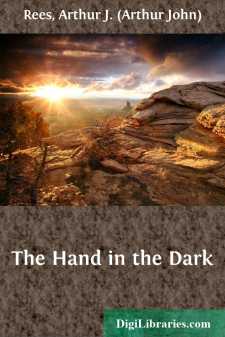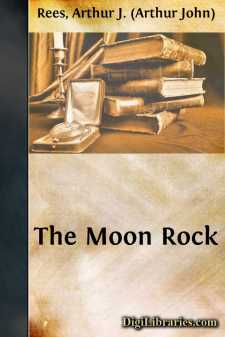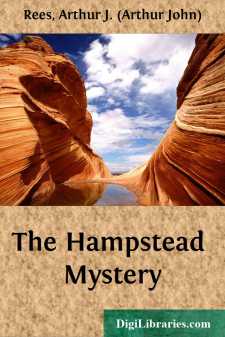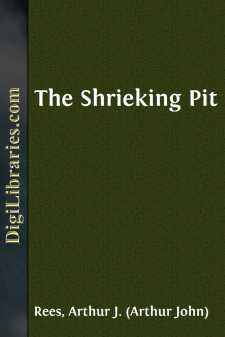Categories
- Antiques & Collectibles 13
- Architecture 36
- Art 48
- Bibles 22
- Biography & Autobiography 813
- Body, Mind & Spirit 142
- Business & Economics 28
- Children's Books 17
- Children's Fiction 14
- Computers 4
- Cooking 94
- Crafts & Hobbies 4
- Drama 346
- Education 46
- Family & Relationships 57
- Fiction 11829
- Games 19
- Gardening 17
- Health & Fitness 34
- History 1377
- House & Home 1
- Humor 147
- Juvenile Fiction 1873
- Juvenile Nonfiction 202
- Language Arts & Disciplines 88
- Law 16
- Literary Collections 686
- Literary Criticism 179
- Mathematics 13
- Medical 41
- Music 40
- Nature 179
- Non-Classifiable 1768
- Performing Arts 7
- Periodicals 1453
- Philosophy 64
- Photography 2
- Poetry 896
- Political Science 203
- Psychology 42
- Reference 154
- Religion 513
- Science 126
- Self-Help 84
- Social Science 81
- Sports & Recreation 34
- Study Aids 3
- Technology & Engineering 59
- Transportation 23
- Travel 463
- True Crime 29
The Hand in the Dark
Categories:
Description:
Excerpt
Seen in the sad glamour of an English twilight, the old moat-house, emerging from the thin mists which veiled the green flats in which it stood, conveyed the impression of a habitation falling into senility, tired with centuries of existence. Houses grow old like the race of men; the process is not less inevitable, though slower; in both, decay is hastened by events as well as by the passage of Time.
The moat-house was not so old as English country-houses go, but it had aged quickly because of its past. There was a weird and bloody history attached to the place: an historical record of murders and stabbings and quarrels dating back to Saxon days, when a castle had stood on the spot, and every inch of the flat land had been drenched in the blood of serfs fighting under a Saxon tyrant against a Norman tyrant for the sacred catchword of Liberty.
The victorious Norman tyrant had killed the Saxon, taken his castle, and tyrannized over the serfs during his little day, until the greater tyrant, Death, had taught him his first—and last—lesson of humility. After his death some fresh usurper had pulled down his stolen castle, and built a moat-house on the site. During the next few hundred years there had been more fighting for restless ambition, invariably connected with the making and unmaking of tyrants, until an English king lost his head in the cause of Liberty, and the moat-house was destroyed by fire for the same glorious principle.
It was rebuilt by the freebooter who had burnt it down; one Philip Heredith, a descendant of Philip Here-Deith, whose name is inscribed in the Domesday Book as one of the knights of the army of Duke William which had assembled at Dives for the conquest of England. Philip Heredith, who was as great a fighter as his Norman ancestor, established his claim to his new estate, and avoided litigation concerning it, by confining the Royalist owner and his family within the walls of the moat-house before setting it on fire. He afterwards married and settled down in the new house with his young wife. But the honeymoon was disturbed by the ghost of the cavalier he had incinerated, who warned him that as he had founded his line in horror it would end in horror, and the house he had built would fall to the ground.
Philip Heredith, like many other great fighters, was an exceedingly pious man, with a profound belief in the efficacy of prayer. He endeavoured to thwart the ghost's curse by building a church in the moat-house grounds, where he spent his Sundays praying for the eternal welfare of the gentleman he had cut off in the flower of his manhood. Perhaps the prayers were heard, for, when Philip Heredith in the course of time became the first occupant of the brand-new vault he had built for himself and his successors, he left behind him much wealth, and a catalogue of his virtues in his own handwriting. The wealth he left to his heirs, but he expressly stipulated that the record of his virtues was to be carved in stone and placed as an enduring tablet, for the edification of future generations, inside the church he had built.
It was a wise precaution on his part. The dead are dumb as to their own merits, and the living think only of themselves. Time sped away, until the first of the Herediths was forgotten as completely as though he had never existed; even his dust had been crowded off the shelf of his own vault to make room for the numerous descendants of the prolific and prosperous line he had founded....





